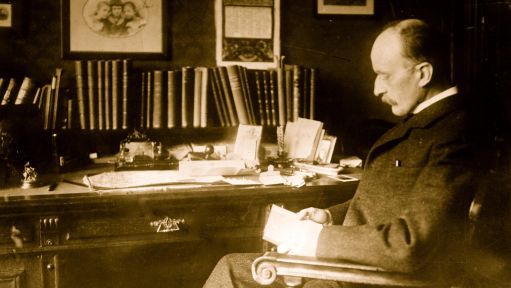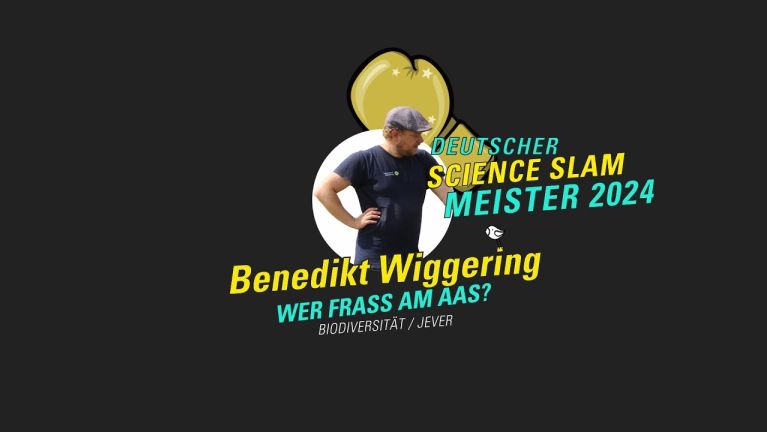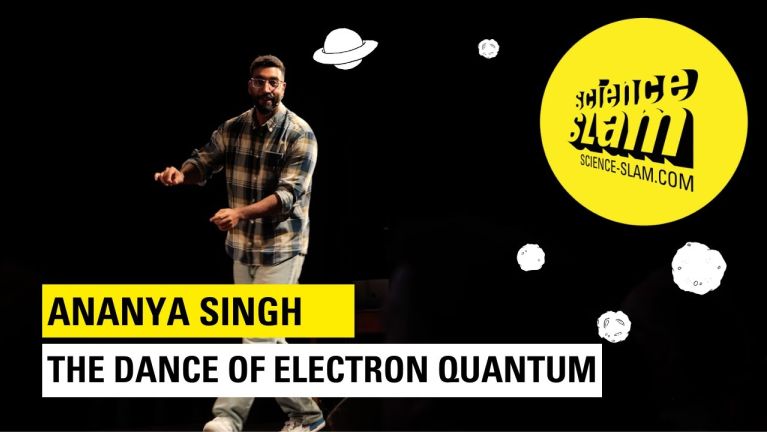
Science and fun in ten minutes
A research topic, a lecture and an audience in search of inspiration. Curtain up for the Science Slam!

There’s a dead deer lying by the path. Most walkers would probably be disgusted and give it a wide berth – but not Benedikt Wiggering. He’s a fan of carrion: as an expert on invertebrates, he studies all the creatures that come to nibble at the deer. Together with his colleagues at the Lower Saxon Wadden Sea National Park Authority, he carries out research into biodiversity on the North Sea coast. For Wiggering, it’s a dream job. And it’s a passion he shares with audiences at Science Slams: he claimed the title of 2024 German Science Slam Champion after winning over the crowd with his talk “Who ate the carrion?”
Dieses YouTube-Video kann in einem neuen Tab abgespielt werden
YouTube öffnenThird party content
We use YouTube to embed content that may collect data about your activity. Please review the details and accept the service to see this content.
Open consent formComplex science in ten minutes
At a Science Slam, researchers present their work to an audience that’s usually made up of non-specialists. The most important rule: talks must not exceed ten minutes and should be as entertaining as possible. According to the official rules at science-slam.com, anything goes “as long as it doesn’t violate fire safety regulations.” The audience judges the different talks with their applause – whoever communicates their research best wins the battle of the sciences.
The first Science Slam was held in 2006 in Darmstadt and since then, the format has spread throughout Germany. The event was originally held in German but it is now increasingly held in English and occasionally in other countries, too.
Dieses YouTube-Video kann in einem neuen Tab abgespielt werden
YouTube öffnenThird party content
We use YouTube to embed content that may collect data about your activity. Please review the details and accept the service to see this content.
Open consent formConveying research through emotion

How does a Science Slam differ from an academic lecture? For Benedikt Wiggering, the idea is for the speaker to convey their own emotions to the audience. It’s not about “droning on with dry facts and dull bar charts,” he says, but about putting across the passion you feel for your research. The 2024 Science Slam champion did just that – performing part of his talk in an ironically dark voice to the sound of heavy metal.
More than anything, Wiggering wants the audience to leave the event having gained a fresh perspective: they should no longer regard a dead deer by the roadside as an object of disgust but as an important part of biodiversity.







A research topic, a lecture and an audience in search of inspiration. Curtain up for the Science Slam!
Find out more



